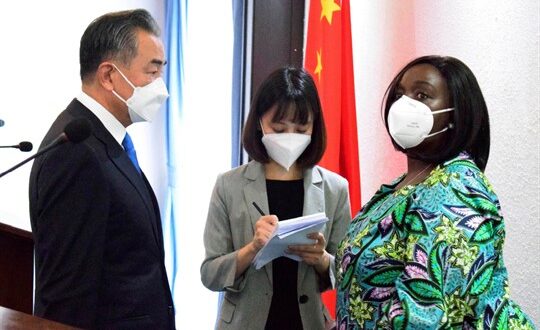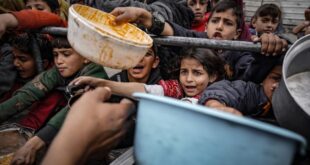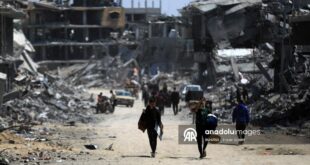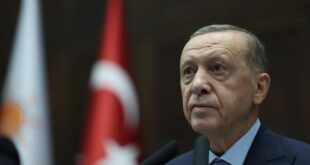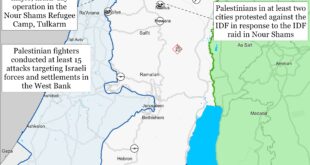Last week, Chinese Foreign Minister Wang Yi completed a tour of Eritrea, Kenya and Comoros, continuing a tradition dating back three decades by which Chinese foreign ministers open the diplomatic year with a trip to Africa. The visit—which comes just over a month after the conclusion of the eighth Forum on China-Africa Cooperation, or FOCAC, held late last year in Dakar, Senegal—illustrates how China’s engagement with African countries is evolving. Beijing is apparently ready to play a bigger role in mediating some of the region’s conflicts. Whether those efforts will pay off is an open question for both China and its partners on the continent.
Wang’s tour comes amid a period of increased jostling for influence among foreign powers in the Horn of Africa, a strategically important region on the continent. Saudi Arabia, Qatar, the United Arab Emirates, Egypt and Turkey have all increased their involvement in the Horn’s internecine rivalries in recent years. More recently, an Israeli delegation met this week with Sudan’s military rulers. U.S. Assistant Secretary of State for African Affairs Molly Phee and the newly appointed U.S. special envoy for the Horn of Africa, David Satterfield, also visited Sudan this week for meetings with pro-democracy activists and military leaders, as part of an effort to bolster a United Nations-led dialogue among various stakeholders to end the political standoff in that country.
Wang’s trip was notable for his announcement during his stop in Kenya that Beijing will appoint a special envoy for the Horn of Africa to provide support for a peace process within and among the countries of the region. The embrace of a more proactive diplomatic role in such a strategic region suggests that Beijing is keenly aware of the ways its diplomacy and global image have suffered in recent years, particularly due to the so-called “wolf warrior” approach of its envoys and the “debt-trap diplomacy” it is regularly accused of engaging in.
The appointment of a Horn of Africa envoy also suggests that Beijing is eager to broaden its capabilities as a rising power beyond its image as merely a writer of checks to poorly performing governments, and to demonstrate that its engagement in Africa is not exclusively focused on infrastructure. That in turn reflects the ways in which the country’s global ambitions have grown considerably under President Xi Jinping, whose outsized influence, ambition and commanding role in the Communist Party led its senior officials to declare him an equal to Mao Zedong and Deng Xiaoping.
With China now a global commercial and economic presence, Beijing is seeking to consolidate its role as a leading power with a signature style of “mediation diplomacy”—one that strikes a balance between its stated commitment to non-interference in the internal affairs of other nations and its ambitions to be a credible diplomatic heavyweight, all while securing Beijing’s economic interests and political influence. The Horn of Africa presents a particular opportunity to do so, as a subregion of a continent where China can reasonably expect to exert influence.
The timing of Wang’s announcement of the new special envoy post, so soon after news broke of the resignation of Washington’s former regional envoy, Jeffrey Feltman, was also likely no coincidence, given the broader strategic competition between Beijing and Washington as well as growing perceptions of Washington’s dwindling influence in the Horn of Africa.
While Beijing’s desire to expand its diplomatic engagement in Africa will likely meet a favorable reception from governments on the continent, its attempts to do so could run into the same obstacles faced by other international actors in the region, including the U.S., the European Union, the African Union and the U.N., to say nothing of the Middle East powers. What will China do differently that they have not already attempted? And how will Beijing address the inherent tension between its “non-interference” stance on one hand, and its ambitions to leverage its global economic footprint in the service of its military and diplomatic ambitions on the other?
Equally, what do local and regional actors think about these questions, and how will the dynamics of great-power competition influence their calculations? For instance, in the case of Ethiopia’s civil war, Beijing is rightly or wrongly regarded by many observers, including Tigrayans and their diasporas, as being aligned with the government of Prime Minister Abiy Ahmed, while the Tigray People’s Liberation Front is perceived to have the sympathy of Washington and other Western capitals. How will a Chinese special envoy overcome doubts about Beijing’s impartiality as an honest broker?
Special envoys also occupy a gray area where their visibility and specialized responsibility is often undercut by a lack of decision-making power, and foreign governments can easily detect that. Leaders in the Horn of Africa and elsewhere on the continent are accustomed to direct access to and personal dealings with Xi. They might prove to be less receptive to a temporary emissary whose pronouncements they could very well regard as nonbinding.
In other words, announcing and filling the special envoy role could very well signal China’s shifting approach to its global role. But unless Beijing empowers whoever is appointed to the position in a way that reinforces their credibility with local, regional and international partners, it is unlikely to lead to effective mediation of the region’s conflicts or represent the “win-win” scenario Chinese officials frequently allude to as a justification for deepening ties with Africa.
Civil Society Watch
A U.N.-facilitated consultative process in Sudan bringing together a wide range of stakeholders—including civil society groups, academia, professional associations and political parties—is in its second week. The consultations are aimed at breaking the current impasse, which has intensified since the country’s October 2021 coup, to open a pathway to establishing a civilian democracy and consolidating a permanent peace settlement.
The consultative process is taking place amid continuing demonstrations and protests in Sudan following the resignation of former Prime Minister Abdalla Hamdok. By leaving the country’s military leaders in full control, Hamdok’s resignation complicated the civilian-military power-sharing agreement that was intended to pave the way for civilian elections. On Monday, Sudanese security forces killed seven people and wounded at least 100 others, two days before the visit of U.S. envoys Molly Phee and David Satterfield.
AFCON Watch
The 2021 Africa Cup of Nations Round of 16 lineup is complete, following an exciting and dramatic group stage.
After an entertaining first week characterized by low-scoring matches, the goals eventually came pouring in, jumpstarting the tournament with a burst of highlight-reel goals, memorable incidents, major upsets and several fairy-tale outcomes. Contender Nigeria safely made it to the Round of 16 with a perfect record, dispatching Egypt, Sudan and Guinea Bissau in its three matches. The Super Eagles were joined by other heavyweights, such as Cameroon, Senegal, Egypt and Cote d’Ivoire. But the tournament’s first knockout round also begins with several dark horses still in the running. Cabo Verde, Gambia, Malawi and Gabon all made it, as did Comoros, which defeated four-time AFCON champions Ghana in perhaps the match of the tournament to date to claim its spot.
The Coelacanths, as the Comoros national team is nicknamed, have made it to the final 16 against tall odds. Like Gambia, Comoros’s appearance in AFCON is its first ever, and it entered the tournament as the lowest-ranked side of the 24 teams that qualified. They only joined the Confederation of African Football, or CAF, in 2003, and the International Federation of Association Football, or FIFA, two years later. Few would have picked them as likely to get out of the group stages, but the Coelacanths defied the odds with defensive discipline, an opportunistic attack and perhaps a little luck.
In perhaps the biggest shock of the tournament, defending champions Algeria have been eliminated, after their hopes of qualifying for the round of 16 were ended by a 3-1 loss to 2015 champions Cote d’Ivoire. Algeria, which entered the tournament as arguably the favorite to defend its crown, did not win a single one of its three matches, losing two and tying one.
The Round of 16 begins Sunday with a match between Burkina Faso and Gabon, followed by a highly anticipated faceoff between 2004 champions Tunisia and three-time AFCON winners Nigeria.
Top Reads From Around the Web
Cameroon’s New Literary Generation Comes of Age, as Anglophone Crisis Deepens. The ongoing Africa Cup of Nations, held this year in Cameroon, has put the country in the spotlight for much of the continent, and even beyond. Last week’s shooting death of a prominent opposition lawmaker in the northwest city of Bamenda also brought some international attention to a yearslong conflict in Cameroon between the central government and the largely English-speaking inhabitants in the area.
The first top read in today’s newsletter is a 2021 article by Otosirieze Obi-Young in Open Country Magazine that looks at Cameroon’s vibrant and dynamic—if often overlooked—literary scene. The country has long produced talented, multilingual writers, and Obi-Young takes a particular interest in the newer opportunities that may be emerging for creatives from the minority English-speaking communities caught up in the ongoing conflict.
Culture, Power and Resistance: Reflections on the ideas of Amilcar Cabral. Yesterday marked the 49th anniversary of the assassination of Amilcar Cabral, the Pan-Africanist revolutionary, intellectual and organizer whose leadership of the national liberation movement in Guinea Bissau and Cape Verde was instrumental to the struggle against Portuguese colonial rule. Cabral served as an inspiration to many other anti-colonial and liberation movements across Africa and around the world.
This 2017 piece by Firoze Manji reflects on the emancipatory ethos of Cabral’s words and writing, drawing on the way he used culture as a vehicle of anti-colonial resistance and universalism.
That’s it for this week. See you next time!
 Eurasia Press & News
Eurasia Press & News
